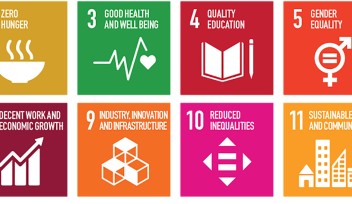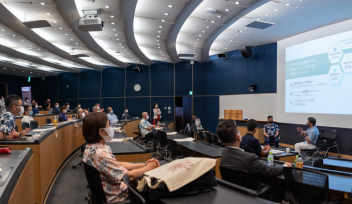Prof. Yabing Qi Selected as National Nominee for Inaugural Frontier Planet Prize
Prof. Qi has been selected as the national nominee for this prestigious award after successfully clearing the qualifying rounds with the national representative body of Japan.
His work is inspiring transformative change towards a sustainable future.
About the research
Challenges associated with energy supply and global warming have raised public awareness of the need to develop alternative “green” energy sources. Solar energy is the most abundant form of renewable energy available; it is critical to creating sustainable clean energy, reducing CO2 emissions, and mitigating the negative impact of global climate change.
As such, tremendous research effort has been directed at solar cells. In particular, perovskite solar cells are a strong candidate for next-generation solar technology and have attracted immense interest from both academia and industry. Currently one of the bottlenecks impeding the commercialization of perovskite solar technology is the relatively small solar cell area.
A 2022 research paper in Nature Energy from Prof Qi’s team reported the first cost-effective production of high-performance perovskite solar cells with an area exceeding 200 square centimeters. This achievement significantly reduces the size gap between lab-scale solar cells and commercial solar panels. It is likely to speed up the commercialization of perovskite solar technology and actively contribute to mitigating climate change.
About Frontiers Planet Prize
Launched in 2022, the Frontier Planet Prize recognizes breakthroughs in sustainability science that have measurable potential to help humanity remain within the limits of our planet’s ecosystem.
A Jury of 100 leading sustainability scientists cast their votes to select national and international champions.
Research Unit














